Zagreb Gay Pride 2021 Analysis: Issues Still Exist, Pride Celebrates History and Present Equality
July 5, 2021 - Gay rights in Croatia still have challenges ahead, but even if all problems are resolved, Pride should remain a commemorative event. A look at the history of gay culture in Croatia and the current climate in this Zagreb Gay Pride 2021 Analysis by TCN reporter Ivor Kruljac.
Zagreb Pride is the oldest pride in Croatia. First held in 2002, it attracts more and more people every year, from LGBTQ members, straight people that support gay rights to NGOs, human rights activists, and even politicians from the left and liberal specter. Over the years, the event grew from a one-day pride to Pride month, full of educational and entertaining events regarding LGBTQ issues and a chance for people with the same preferences to meet and celebrate who they are.
Pride month is marked in June in honor of the 1969 Stonewall Uprising in Manhattan.
„The Stonewall Riots, also called the Stonewall Uprising, began in the early hours of June 28, 1969, when New York City police raided the Stonewall Inn, a gay club located in Greenwich Village in New York City. The raid sparked a riot among bar patrons and neighborhood residents as police roughly hauled employees and patrons out of the bar, leading to six days of protests and violent clashes with law enforcement outside the bar on Christopher Street, in neighboring streets, and in nearby Christopher Park. The Stonewall Riots served as a catalyst for the gay rights movement in the United States and around the world“, reminds History.com.
When it comes to LGBTQ in Croatia, as you can expect with the ideological divide Croatians generally experience, there are mixed feelings on the issue.
From street violence to a family event
Participating in the first Pride in 2002 required that if you are a man loving a man ready to openly admit it, you had to have balls.
The attacks by skinheads and other „morally concerned citizens were fierce and violent. Participants truly needed police protection which was provided but also needed to be careful to not get hit by the incoming rocks that were thrown among the participants.
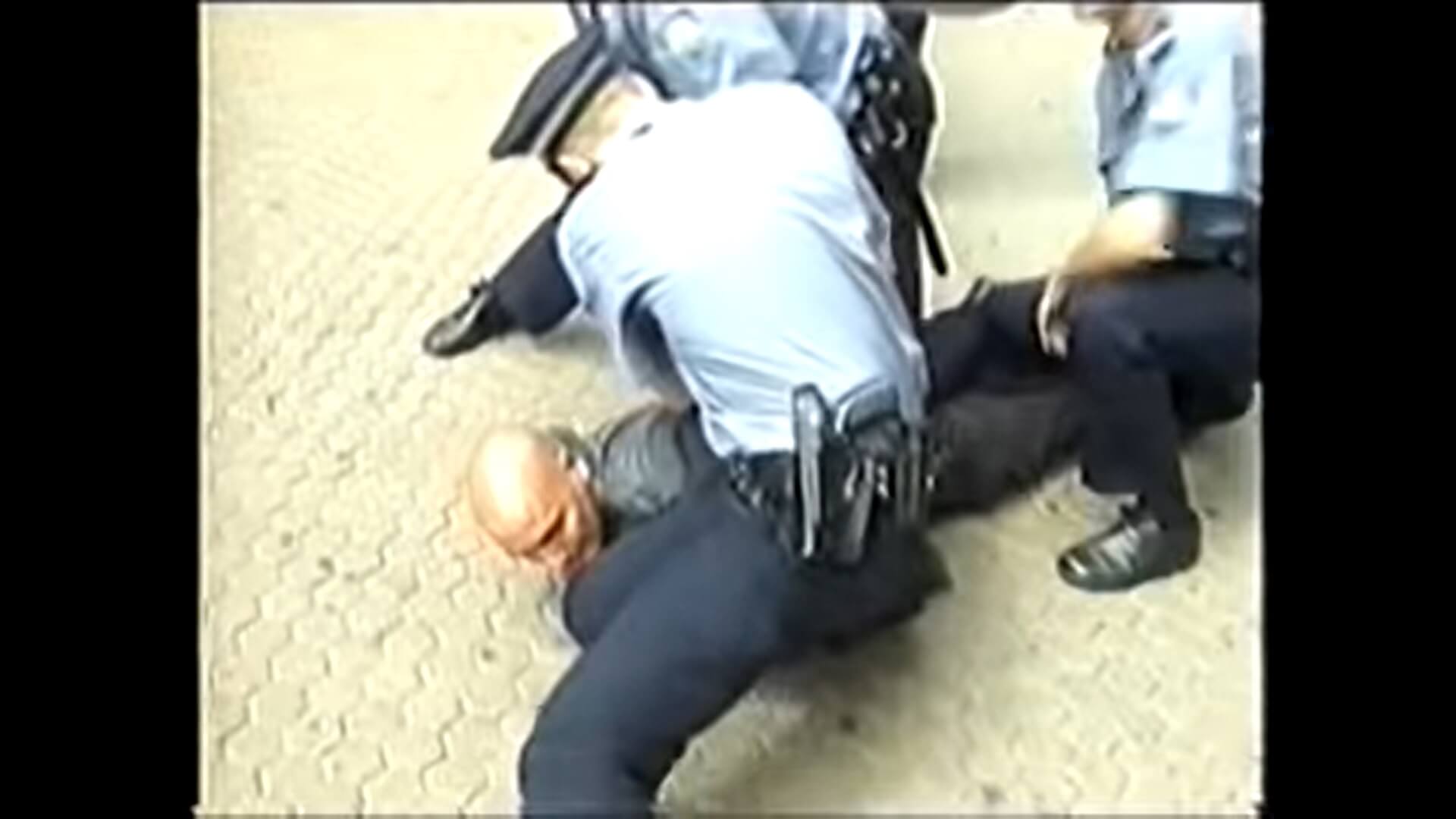
Police arresting violent skinhead at the first Zagreb Pride in 2002, screenshot / Zagreb pride
But, at least for Zagreb, the situation got better and more open. Today, pride is the forthcoming celebration of love and freedom, and entire families can be seen to join the picnic at Ribnjak park to teach their children tolerance and that people are not sick or different from others because of their sexual preference. Other larger cities in Croatia, such as Split, slowly but surely, do follow that path too, and Rijeka, the pinnacle of liberal Croatia, is also a very gay-friendly city.
Of course, a political counterstrike is expected and quite strong. The first most notable one was the 2013 referendum, where it was voted that the Croatian constitution declares marriage as a „community between a man and woman“. The goal was to deny LGBTQ couples the same rights as enjoyed by straight people.
However, the bill on life partnership outplayed that attempt.
In the meantime, LGBTQ couples can also adopt children in Croatia, as Constitutional Court concluded that gay couples fostering children is not against the Croatian Constitution.
That decision and along with the general openness of Croatia towards LGBTQ was followed by a controversial carnival in Imotski where an effigy of a gay couple was burned. President Zoran Milanović demanded an apology from the organizers, and SDP's MP Arsen Bauk filed charges against the organizers.
Counting pluses and minuses, the report on Croatia being the 39th best country for LGBTQ visitors still seems to uphold. No changes for the better, but at least Croatia is still in the top third for this category of tourists.
Haters strike back
2020 and 2021 sadly saw the uprise of violence towards LGBTQ in the Croatian capital. Apart from the occasional tearing down or burning of the rainbow flag, Croatia was shocked with an attempt of burning a man in Maksimir Forest Park as well, with his sexual preference being the sole motive for the attack.
On the other side, this year's pride felt to start stronger than ever. The newly elected mayor Tomislav Tomašević joined the parade, along with stating that Zagreb is a city that is open to everyone. This year arranged a bit differently to adhere to corona measures; around 2500 participated in the event.
„Twenty of our prides made our city and our republic a better, more democratic, and joyous place for the life of all citizens“, was the main message of the 20th edition of Zagreb Pride.
As reported by Index.hr, the Zagreb Pride association representatives stated that the Croatian LGBTIQ community „became a powerful, responsible and self-aware part of the country, but that the fight isn't over“.
„Our constitution and our laws still do not include in a complete and fair way. Our streets and squares are still not free of hate. We didn't forget nor we will forget victims of homophobic and fascist rampage in this year and all previous years“, stated Zagreb Pride.
Sadly, while Pride itself went without issues, participants of the pride who walked the streets of Zagreb after pride with rainbow flags faced a series of physical attacks on several locations in Zagreb.
A week ahead of Pride, conservative MOST Party parliament member Nikola Grmoja complained that commercials displayed during EURO 2020 commercials were LGBTQ propaganda and that kids need to be protected from it and announced that he might include it in his anti-pedophile package. Grmoja's statement caused strong disagreements among the Croatian public, with several people (including celebrities) teasing him that if he wants to start battling pedophilia, he should start from church (as Grmoja is quite clerical). Božo Petrov, president of the MOST party, added more fuel to the fire when he supported Grmoja, stating that „minorities can't dictate what my children can learn in school“. He added that minorities need to be aware that they are minorities and that „we tolerate that," sparking more enrage from the public, with many comparing MOST to the controversial Hungarian Prime Minister Viktor Orban.
Zagreb Pride linked the post-Pride physical attacks with Petrov and Grmoja's public statements, and Petrov and Grmoja announced they would sue Zagreb Pride for slender.
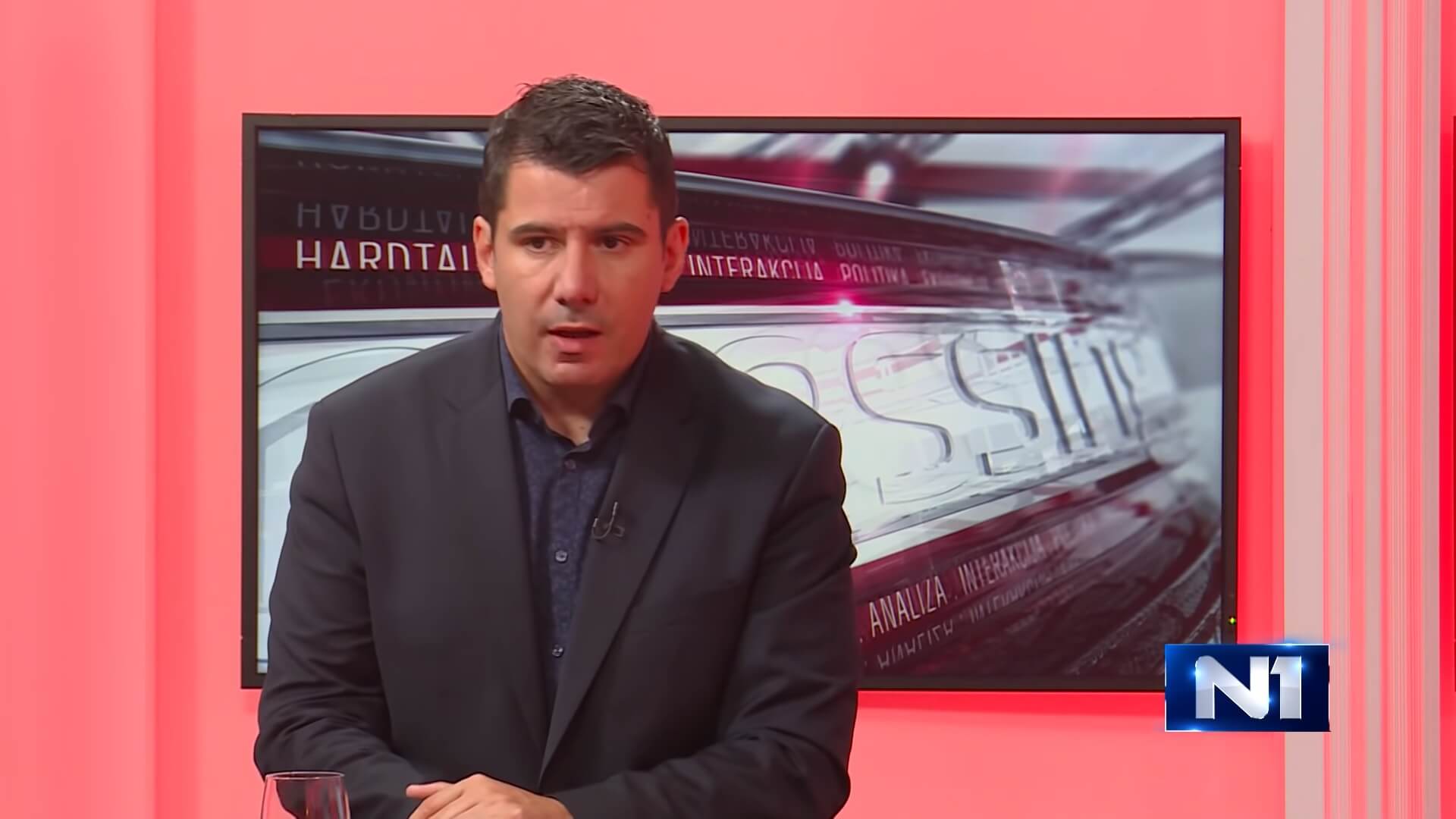
Nikola Grmoja, screenshot N1
The Law: "Gay is OK". Popular opinion: "Do it in your homes, not on the streets".
In this political escalation, what does the average Croatian think? Looking at the comments on social networks, it seems the majority of Croatians don't mind gays being gays and living how they like (even if they are not always happy with legal rights the LGBTQ community received). But, one sentiment in that „tolerance“ is particularly worrying.
„Live in your house however you want it. You don't have to wave around, like its a best thing ever“, said one of the online comments on Index.hr beneath the news on Petrov and Grmoja.
So it seems the public does not understand why Pride is important. First of all, as evident, the political climate is such that the battle for equality truly isn't over in Croatia, and Pride is the best way for the community to express what issues LGBTQ still face in Croatia. Additionally, pride month is also educational and supportive, and public presence show to other people who feel the same that they are not alone, as they might feel lonely and unable to find people who feel the same in everyday life.
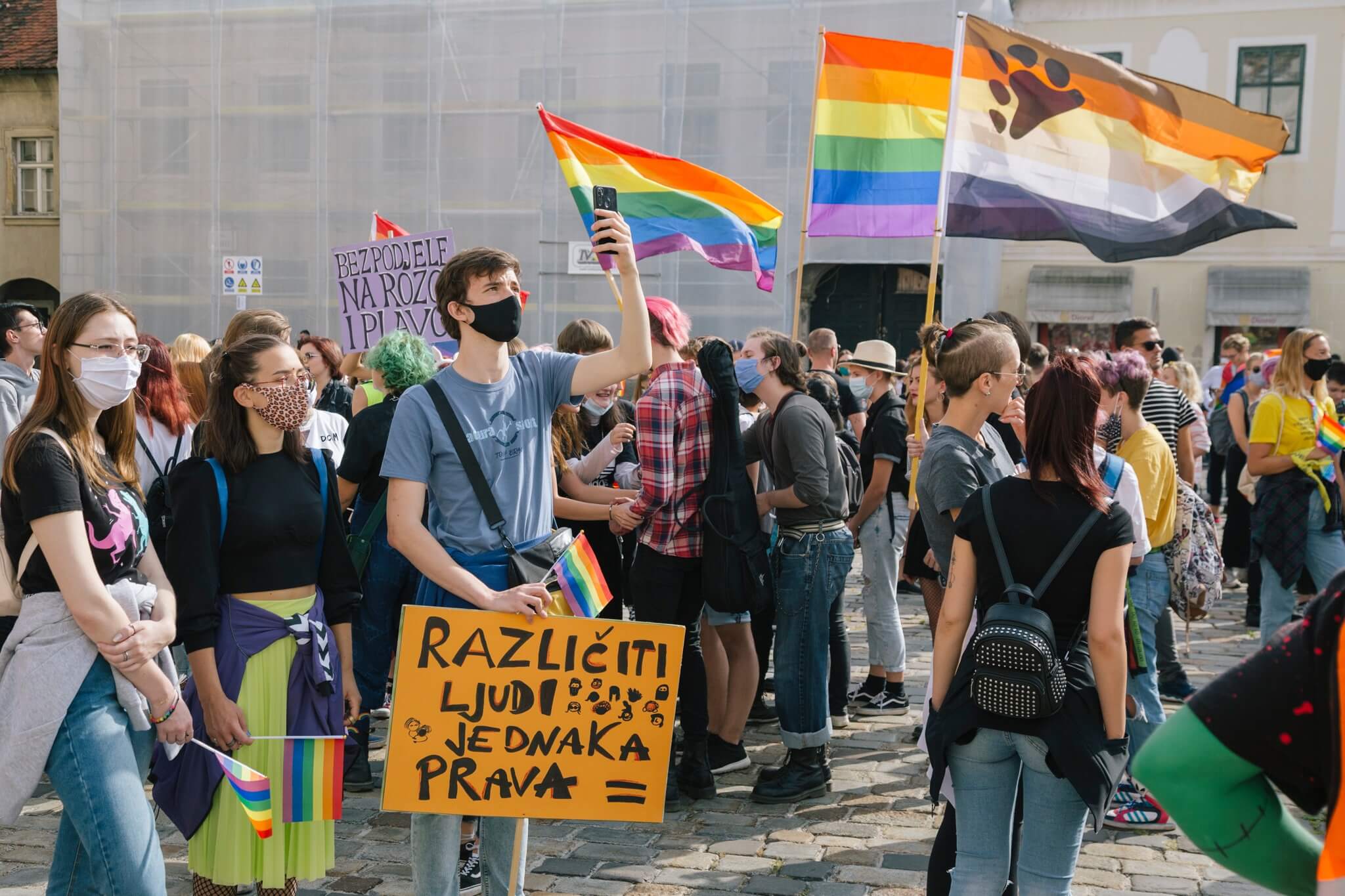
© Zagreb Pride
But, even if the law and constitution give the same rights and solves the problem of intolerance of LGBTQ people completely, does that mean that Pride should then be canceled? Well, Croatia won its independence and the war in the nineties. Does that mean we should stop commemorating the Homeland War? Or is it nice to honor and celebrate the victory and triumph over all obstacles Croatia had to face in its independence? Pride is a cultural, commemorative event honoring those who were or still are victims and oppressed for their sexual preference, either in Croatia or in the world. Croatia is a democratic country. Every group, national, ethnical, racial, religious, etc. should have the right to gather and honor its heroes. The right to gather and honor its tragedies and their dates and connect with other people who feel the same. If political elites are so concerned with keeping Croatians in Croatia, then they can't afford to discriminate or attack part of Croatian society solely based on their sexual preference. A preference that, unlike being violent or intolerable, can't be chosen.
Learn more about LGBT rights in Croatia and what LGBT tourists should know on our TC page.
For more about LGBT in Croatia, follow TCN's dedicated page.
Highlights of the Week: 5 Big Events in Croatia from June 28-July 4
June 3, 2021 - TCN's highlights of the week. A look at the events in Croatia from June 28 through the selection of TCN's reporter Ivor Kruljac.
EURO 2020 elimination and Dario Šarić in the NBA finals. Zagreb witnessing a series of arrests related to corruption of Milan Bandić's reign and explosive device planted in Split. In the midst of it all, is COVID-19 vaccination on its way to becoming obligatory and not optional? You may prefer the good news or the bad news, but here is both, as another week in Croatia comes to an end.
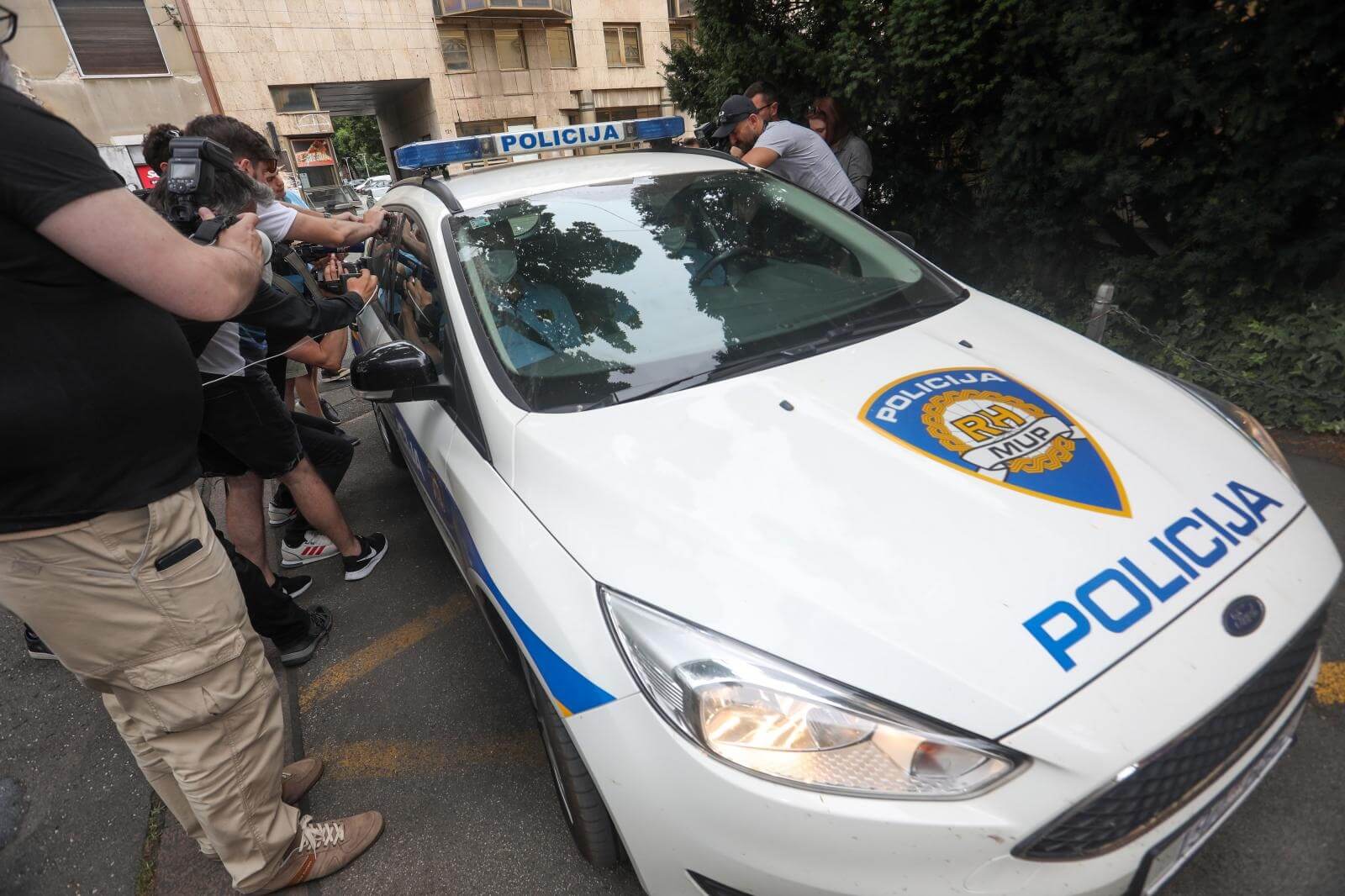
© Marin Tironi / PIXSELL
Highlights of the week: Uskok arresting Zagreb entrepreneurs and associates of former mayor Milan Bandić
The Office of Zagreb Mayor Tomislav Tomašević said on Wednesday that a preliminary investigation by members of the Office of the Chief State Prosecutor and the Office for Suppression of Corruption and Organised Crime (USKOK) started at the city administration offices at 6 am on Wednesday.
As TCN wrote, several people were arrested on suspicion of corruption, including the director-general of the HRT public broadcaster, Kazimir Bačić, Andrea Šulentić, and Ana Stavljenić-Rukavina. Both Šulentić and Rukavina were directors in Zagreb administration offices and close associates of former mayor Milan bandić. At the same time, details Bandić's heavy corruption (suspected and known publicly earlier) came to light.
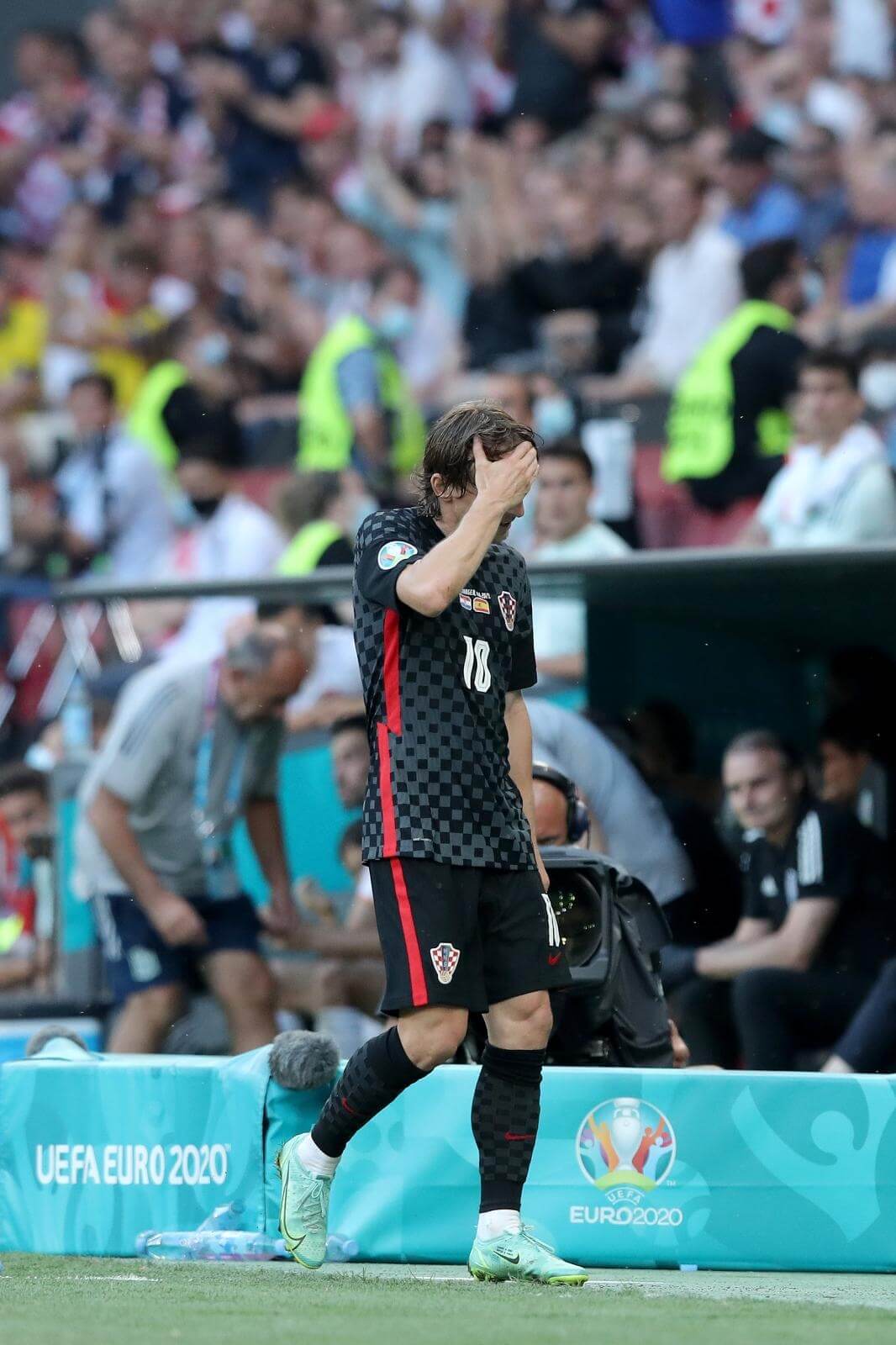
© Goran Stanzl / PIXSELL
Highlights of the week: Croatia eliminated from Euro 2020 after losing to Spain
Croatia and Spain met in Copenhagen on Monday for their EURO 2020 round of 16 match. It was a decent effort from Croatia, but not enough. Despite the Spain own goal in the 20th minute, the distraction as Rebić went to change his boots saw Spain even the score. The score towards the end of regular time went to 3:1 for Spain, but Croatia managed to lower to 3:2 and finally, in the added time, Pašalić scored for 3:3.
But, the euphoria was ruined for Croatia as in extra time, Morata earned Spain 4:3, and by 103rd minute, the total and final score was 5:3 for Spain. It was one of the more intense games on Euro so far as both teams show incredible spirit and persistence.
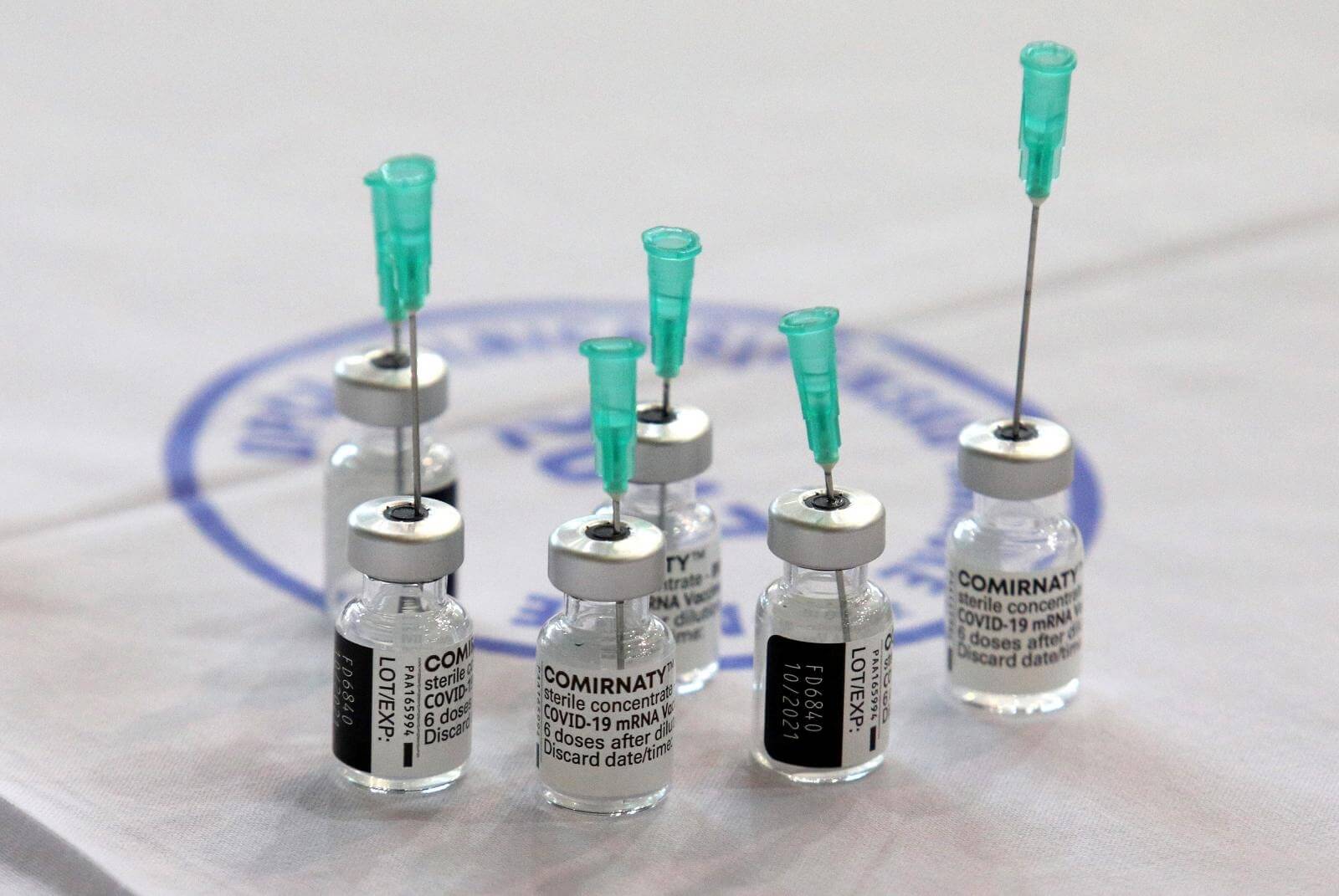
© Dusko Jaramaz / PIXSELL
Highlights of the week: Opposition parties against vaccination being required for job-keeping payments
The Social Democratic Party (SDP) called on Prime Minister Andrej Plenković on Thursday not to make vaccination a requirement for job-keeping payments, while the Most party said business owners were being blackmailed into vaccination.
As TCN reported, SDP leader Peđa Grbin elaborated his dissatisfaction via social networks.
"In Croatia, mandatory vaccination is possible, but the obligation is first established under the law on the protection of the population and then regulated and worked out under Immunisation Rules and the Mandatory Vaccination Programme. The obligation of vaccination can't be imposed in another way, notably not by linking support for entrepreneurs with vaccination," SDP president Grbin posted on Facebook.
"Most is against entrepreneurs, who are being forced into vaccination through blackmail, saving the government's mindless epidemic policy", stated the Most party on its official Twitter account. They added that Croatia was stuck with over 300,000 surplus vaccines because of poor government moves and communication omissions.
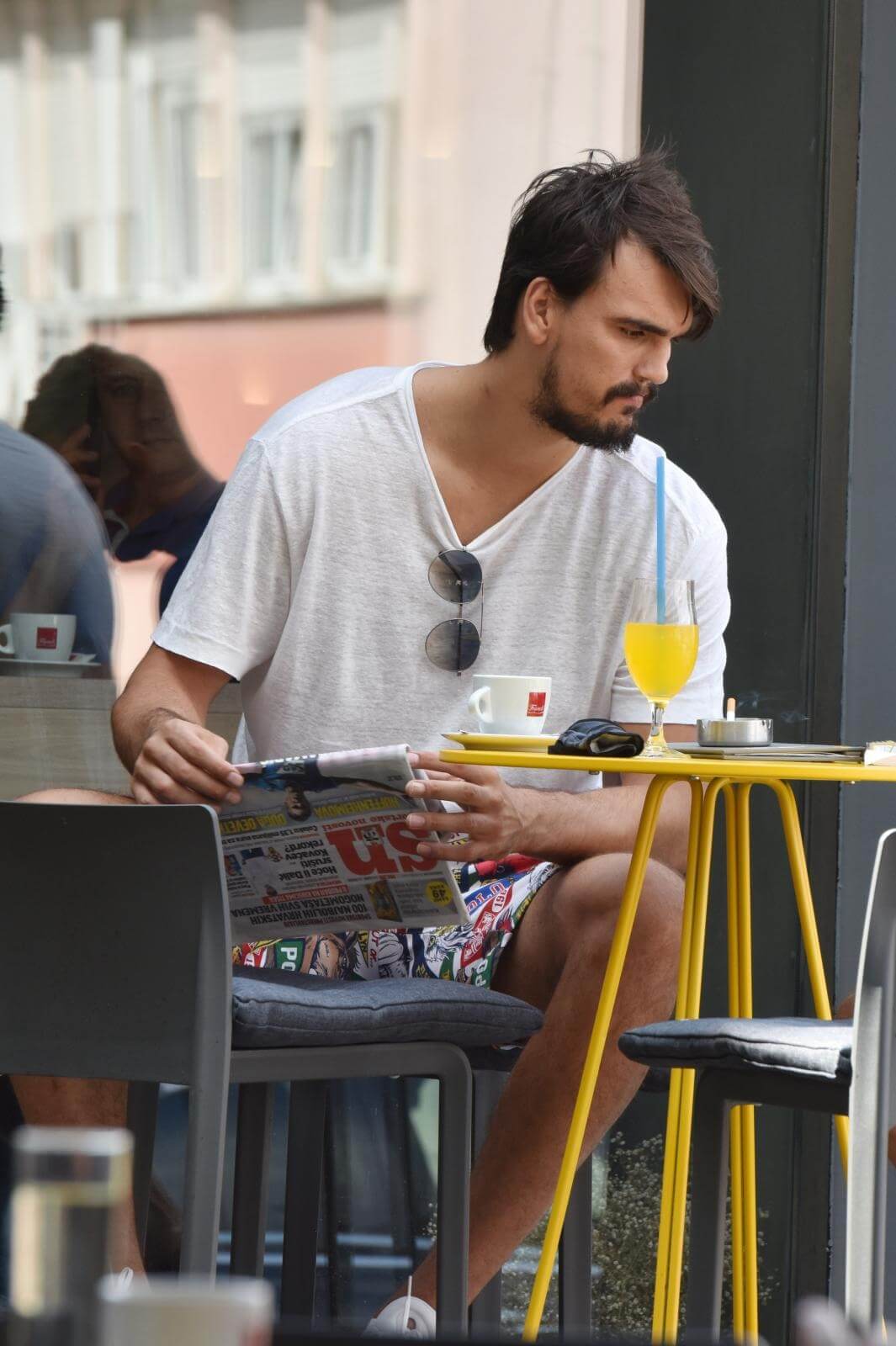
© Hrvoje Jelavic / PIXSELL
Highlights of the week: Dario Šarić becomes 5th Croatian basketballer in the NBA finals
Šibenik's Dario Šarić is the 5th Croatian basketball player to reach the NBA finals! As TCN wrote, Šarić became only the fifth Croatian basketball player in the NBA league finals, joining the company of Dražen Petrović, Toni Kukoč, Žan Tabak, and Ante Žižić. Šarić plays for Phoenix Suns. They topped the Los Angeles Clippers 4-2 in the NBA Western Conference Finals. Apart from basketball, Šarić also likes to enjoy sipping coffee on Šibenik cafe terraces, as portrayed in the photo.
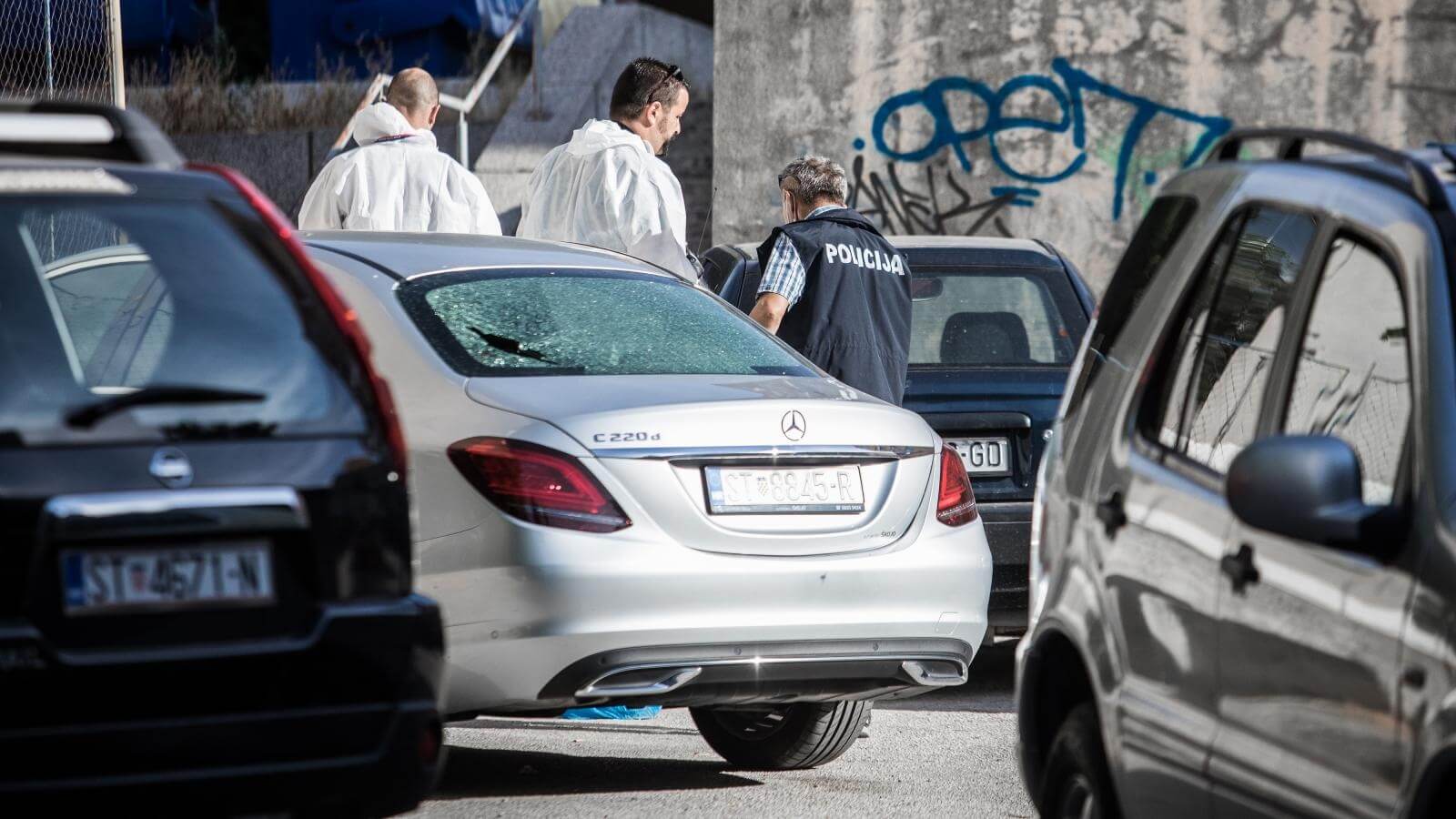
© Milan Sabic / PIXSELL
Highlights of the week: Bomb planted in Split. One person injured
In the night from Thursday to Friday, an unknown person placed an explosive device underneath a vehicle. The explosion damaged six cars, and one person required medical attention. The investigation is ongoing since Friday morning.
To learn more about Croatia, have a look at our TC website.
For more about news in Croatia, follow TCN's dedicated page.
HSLS Condemns Grmoja's Statement about Paedophiles and LGBT Persons in Same Context
ZAGREB, 2 July 2021 - The HSLS party on Friday condemned a statement by Bridge MP Nikola Grmoja who expressed disgruntlement over the promotion of sexual minority rights and linked the LGBT community to paedophilia.
"Tolerance and intolerance are two opposites that best symbolise two Europes today, a democratic one with liberal principles of freedom, equality and tolerance as part of their state policies, and an undemocratic one led by Orban's policies of intolerance and discrimination," HSLS leader Dario Hrebak said in a press release.
He said that in that kind of Europe there are two mutually opposite Croatias, one that belongs to the EU with its values and the other which is represented by "Orban's poltroons," which is the group that "Grmoja obviously belongs to," who are bothered by democracy and the values it consists of.
HSLS, which is part of the ruling coalition considers that the purpose of political institutions is peaceful conflict resolution between individuals, protecting individuals from any form of oppression and finding solutions to political problems that would be in accordance with the wishes and interests of individuals.
Democracy is not only its institutions but values it is founded on, and the relationship towards minorities in fact shows how a society puts its democratic values into practice, said Hrebak.
We must never stop fighting against backward ideas because by condemning them and clearly distancing ourselves from them, we are protecting democracy and its institutions, he added.
Grmoja on Wednesday announced that he would put forward and anti-phaedophile bill that would also ban "LGBT propaganda" being spread to minors.
For more on politics, follow TCN's dedicated politics page.
SDP, Bridge Against Vaccination Being Required for Job-keeping Payments
ZAGREB, 2 July 2021 - The Social Democratic Party called on Prime Minister Andrej Plenković on Thursday not to make vaccination a requirement for job-keeping payments, while the Bridge party said business owners were being blackmailed into vaccination.
"In Croatia, mandatory vaccination is possible, but the obligation is first established under the law on the protection of the population and then regulated and worked out under Immunisation Rules and the Mandatory Vaccination Programme. The obligation of vaccination can't be imposed in another way, notably not by linking support for entrepreneurs with vaccination," SDP president Peđa Grbin posted on Facebook.
He said the government's COVID-19 vaccination plan had failed. "Workers and entrepreneurs can't be held to account for that," he said, telling the government and Plenković, "if you want to link vaccination with some benefits, set clear criteria, define who will monitor them and enable them for all."
Bridge tweeted that Croatia was stuck with over 300,000 surplus vaccines because of poor government moves and communication omissions. "Bridge is against entrepreneurs, who are being forced into vaccination through blackmail, saving the government's mindless epidemic policy."
For more on politics in Croatia, follow TCN's dedicated politics page.
Opposition Parties File Motion of No Confidence in Health Minister Vili Beroš
ZAGREB, 4 May, 2021 - Parliamentary opposition parties have filed a joint motion for a vote of no confidence in Health Minister Vili Beroš over the accumulated problems in the healthcare sector and scandals related to the minister, Social Democratic Party (SDP) leader Peđa Grbin said on Tuesday.
"The reasons for this move are clear to all citizens - the accumulated debts in the healthcare system resulted in the suspension of deliveries of medicines to hospitals at the height of the pandemic. There are also huge problems with the vaccination system, and we have learned of favourable treatment in the development of the cijepise.hr vaccination registration system," Grbin said.
"The development of this non-functioning system was awarded to people connected with Minister Beroš. There are also suspicious public procurement procedures at the Health Ministry such as one where IT services were awarded to a florist and tenders were fixed for former HDZ health ministers Andrija Hebrang and Neven Ljubičić, which have been cancelled but only after media started writing about them," he added.
"The Health Ministry is simply not functioning. There are no reforms, and the extent to which this affects people's lives could best be seen in a recent case at the Clinic for Tumors where citizens suffering from malignant diseases could not receive adequate care," Grbin said, naming Beroš as the person most responsible for this.
"We want Beroš to go because right now he has done nothing positive for the healthcare system, and all the negative things he has done pose a direct threat to people's health and lives," the SDP leader said. "His departure, however, will not be enough and we will all have to come to grips with the accumulated problems together."
Grbin said that a discussion on Beroš must be held within 30 days, and whether it will be held before or after the 16 May local elections "depends on Prime Minister Andrej Plenković and Parliament Speaker Gordan Jandroković."
The initiative was signed by all opposition groups in parliament except the Croatian Sovereignists, but they have announced that they will vote in favour Beroš's resignation, Grbin said.
MOST's Nikola Grmoja said that his party had been warning for a long time about the problems faced by the healthcare system, including huge debts to drug wholesalers and long waiting lists.
"Beroš, of course, is not the only one to blame, the whole government is responsible. With our signatures we also want to encourage a reform of the healthcare system. All of us in the opposition agree that changes are necessary and should be launched urgently," Grmoja noted.
Sandra Benčić of the green-left We Can! platform said that they supported all the reasons for a no-confidence vote in Beroš, but stressed that the responsibility for the crisis in the healthcare system and the poor management of the coronavirus pandemic mostly lay with Prime Minister Andrej Plenković.
"None of the ministers, and certainly not Minister Beroš, makes decisions on their own. They were not chosen as competent persons in their departments but were chosen based on their loyalty to the prime minister who ultimately makes all decisions. The prime minister cannot be exonerated by his purported unawareness of the scandals for which we seek Beroš's resignation. That's why we ask whether the country can be run by a prime minister who does not know or who does not get key information," Benčić said.
Homeland Movement MP Stjepo Bartulica said that the Croatian healthcare system was too politicised. "There are countless problems and the possible resignation of Minister Beroš will not change things much. We have insisted from the start that the healthcare system should be governed by market principles because now we don't see any mechanisms that will bring about change to the system as this government resists structural reforms," he said.
For more about politics in Croatia, follow TCN's dedicated page.
Nikola Grmoja (Most Party): "PM Andrej Plenković is the main sponsor of corruption in Croatia"
ZAGREB, 27 April, 2021 - MOST Party Member of Parliament Nikola Grmoja on Tuesday commented on the latest developments in the wind park scandal, saying that even though he is trying to avoid it, Prime Minister Andrej Plenković is the main sponsor of corruption in Croatia.
He appointed ministers Gabrijela Žalac and Marija Vučković, he appointed Minister Tomislav Ćorić and all those who are directly or indirectly connected to the wind park scandal and now he is acting as if he didn't know anything, Grmoja told the press in Parliament House.
We saw that former minister Žalac lobbied for loans to be approved in that scandal, said Grmoja, recalling that while MOST Party was in government, that project did not get the green light because it lacked the necessary environmental impact study, and that as soon as MOST Party was ousted, Minister Ćorić approved the project.
Responding to a reporter's comment that even after the scandal was uncovered, many of its participants kept their positions, Grmoja said that the "mafia doesn't forget its members."
For more about politics in Croatia, follow TCN's dedicated page.
Parliament Debates Work of State Commission for Public Procurement Supervision
ZAGREB, 16 April, 2021 - The Homeland Movement (DP) on Friday strongly criticised the State Commission for Supervision of Public Procurement Procedures (DKOM), saying its head Maja Kuhar "built her career during the term of the (Zoran) Milanović government" and calling Croatia one of the most corrupt countries globally.
"The key problem with the DKOM is that its name does not befit it. It does not supervise public procurement procedures but only resolves appeals in those procedures," DP MP Daniel Spajić said during a debate on the commission's work in 2019.
He claims that many evidently corrupt procedures, like the one for the digitisation of the health system, were not appealed against and are therefore not handled by the DKOM.
Spajić claims that Croatia is one of the most corrupt countries in the world.
That would not be possible if we had a proper public procurement procedure, he says.
While other caucuses commended the DKOM's work and its report, MP Bojan Glavašević of the Green-Left Bloc (ZLB) said the report was a technical document without any data on effects. There is little information regarding the DKOM's anti-corruption activities and there is not one conclusion, description of activities, or recommendation, he said.
MP Marija Selak Raspudić (MOST Party) commended the report, adding that further improvement is possible.
A fundamental improvement would be to see how much state administration bodies had to pay appellants due to poorly conducted public procurement procedures, she said.
We also want a black list of public administration bodies which have made the most errors in absorbing EU funds and we want to know who the professional appellants are, Selak Raspudić said.
MP Rada Borić (ZLB) warned of the large number of procedures with just one bidder, saying this was the greatest corruption risk.
Social Democratic Party (SDP) MP Željko Pavić referred to the detail that there was an increasing number of appeals to documentation on public procurement and asked whether that problem could be resolved if there was a special department at the DKOM in charge of checking documents.
MPs from the ruling Croatian Democratic Union (HDZ) praised the document. MP Branka Juričev Martinčev (HDZ) was pleased with the increased number of projects using EU funds and that the DKOM had handled these procedures well.
Systematic training necessary
Most lawmakers agreed that systematic training is necessary for participants in public procurement procedures to avoid errors.
In 2019 the DKOM had 1,365 appeals, including 1,209 new ones, which is a mild increase compared to 2018.
The majority of appeals referred to the selection phase (66%), however, there was a growing trend in the number of appeals related to procurement documents (32%), which can largely be attributed to a single fee to launch an appeal of HRK 5,000, regardless of the value of the procurement.
The DKOM's decisions can be disputed before the High Administrative Court and in 2019 that court quashed less than 3% of the DKOM's decisions.
For more about politics in Croatia, follow TCN's dedicated page.
MOST Party: Corruption Scandals Under Guise of Fight Against COVID
OSTZAGREB, 16 April, 2021 - Member of Parliament Zvonimir Troskot of the MOST party on Friday said that huge corruption risks and scandals are hiding under the guise of fight against COVID-19, warning of a new scandal regarding the Cijepise (Get vaccinated) application.
Yet another scandal is about to break regarding the Cijepise application whose design was awarded in a non-transparent way to a good friend of Health Minister Vili Beroš's, with details of the deal having been hidden for months, Troskot told a press conference in Parliament House.
"Huge corruption risks and scandals are being hidden under the guise of fighting against COVID," he said, recalling that MOST had requested that the procurement procedure for medical equipment should not be confidential.
There is an evident model where procurement is being segmented so it does not exceed the threshold of HRK 200,000 in order to avoid a public procurement procedure, said Troskot.
The Cijepise application is very important and should be helping citizens to get vaccinated yet instead people are being inoculated out of line, he said.
For more about politics in Croatia, follow TCN's dedicated page.
Opposition Accuse Government of Trying to Buy Votes From Pensioners and Young People
ZAGREB, 15 April, 2021 - Parliamentary opposition parties on Thursday criticised the government's plan to pay a COVID supplement to pensioners and a tax refund to young people in the run-up to local elections as vote buying.
Arsen Bauk of the Social Democratic Party (SDP) told reporters in the parliament building that the government "has obviously sorted its priorities to ensure the best possible election result" for the ruling Croatian Democratic Union (HDZ).
"We support a COVID supplement for pensioners, even before elections. I think the Croatian democracy is mature enough and that this will not result in voters voting en masse for the HDZ," Bauk said.
Homeland Movement MP Stjepo Bartulica said that Prime Minister Plenković often expressed his disdain for populists. "I see a great dose of populism in the timing of this measure," he said.
"We are all equal in Croatia, but obviously some groups are more equal than others, especially with elections coming up. In principle, I am not against helping the pensioners, but the way in which the government runs its policies actually increases cynicism in Croatia," Bartulica said.
Bridge's Božo Petrov noted that the government had promised several years ago that the living standards and monthly incomes of pensioners would rise considerably, suggesting that the measures proposed by the government should remain permanent.
Bojan Glavašević of the Green-Left Bloc said that "the pensioners and young people, as vulnerable groups, need systematic rather occasional assistance."
Unlike the opposition, the HDZ's Ivan Ćelić disagreed that this was an attempt at vote buying for local elections. "Let me remind you that a month before elections the (SDP) government of Zoran Milanović gave away electricity vouchers of HRK 200, which can be seen in the same way as the COVID supplement," he said.
(€1 = HRK 7.5)
For more about politics in Croatia, follow TCN's dedicated page.
Bridge Party Says Investing in Public Sector Won't Result in Economic Recovery
ZAGREB, 13 April, 2021 - The Bridge party on Tuesday criticised the government's National Recovery and Resilience Plan, noting that investing in the public sector will not finance economic recovery but rather cause new scandals and clientelism.
"Each kuna invested in the private sector will yield a return of four kuna and each kuna invested in the public sector means a maximum return of one kuna, if the money is used efficiently, which in Croatia is not the case," Bridge MP Zvonimir Troskot said at a news conference.
He said that he condemned the stigmatisation of people who think critically about the National Recovery and Resilience Plan as "people whose patriotism is dubious."
Ruling HDZ MP Grozdana Perić last week said that those who criticise the National Recovery and Resilience Plan "do not love Croatia."
"Grozdana Perić and the prime minister's special advisor on economy, Zvonimir Savić, are not the only economic strategists. There are the Institute of Economics, the Croatian Employers' Association, the Entrepreneurs' Association as well as independent economists who are saying that the National Plan is not good," said Troskot.
"If entrepreneurs are again disregarded, we won't have money for wages, pensions or COVID allowances," he said.
Bridge against banning "For homeland ready" salute
Bridge MP Nikola Grmoja commented on initiatives to ban the Ustasha salute "For the homeland ready."
"As regards the insignia of the Croatian Defence Force (HOS), that is a legal unit of the Croatian Army. We are not for bans but rather for education and clear distancing from all totalitarian regimes, Fascism, Nazism and Communism alike," said Grmoja, noting that one should not link HOS with the 1941-45 Independent State of Croatia and the Ustasha.
"Banning symbols turns them into a fetish, and we don't want that," he said.
For more about politics in Croatia, follow TCN's dedicated page.


